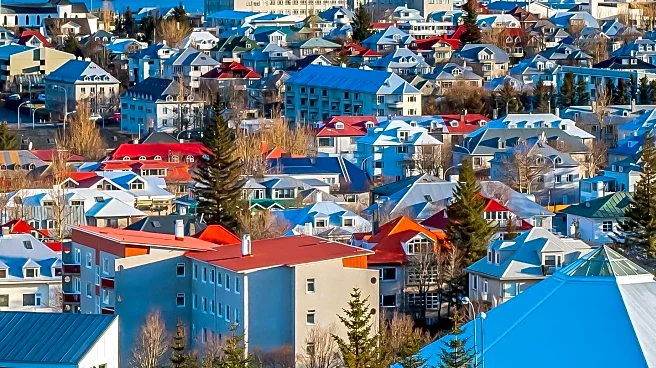What's Happening?
Reykjavík has been named the safest city in the world for 2026, according to the State of Travel Insurance Safest Destinations report by Berkshire Hathaway Travel Protection. This marks the second consecutive
year that the Icelandic capital has topped the rankings, reinforcing its reputation for peace, security, and community trust. Despite Iceland slipping from first to fourth place in the overall safest countries list, Reykjavík's standing highlights the city's enduring appeal as a secure destination. The report attributes Iceland's safety to its low crime rate, strong social welfare system, and robust emergency preparedness, particularly in handling natural events like volcanic eruptions and earthquakes. The annual survey, now in its 11th year, gathers feedback from thousands of American travelers and analyzes global data on crime, terrorism, health risks, and weather-related hazards.
Why It's Important?
Reykjavík's recognition as the safest city in the world underscores the importance of safety and stability in attracting international travelers. For the U.S. travel industry, this designation could influence American tourists' destination choices, potentially increasing travel to Iceland. The emphasis on safety may also encourage other cities to enhance their security measures and emergency preparedness to boost tourism. Additionally, the report's findings highlight the significance of social welfare systems and effective disaster management in maintaining public safety, which could inform policy decisions in the U.S. and other countries aiming to improve their safety rankings.
What's Next?
As Reykjavík continues to be recognized for its safety, the city may experience increased tourism, prompting local businesses and the government to further invest in infrastructure and services to accommodate visitors. This could lead to economic growth and job creation in the tourism sector. Other cities may look to Reykjavík as a model for improving their own safety measures, potentially leading to collaborations or exchanges of best practices in urban safety and emergency preparedness. The report's findings may also influence future travel insurance policies and premiums, as destinations deemed safer could offer more favorable terms to travelers.
Beyond the Headlines
The designation of Reykjavík as the safest city highlights broader cultural and societal values that prioritize community trust and welfare. This recognition may encourage discussions on the role of social systems in fostering safe environments, potentially influencing urban planning and policy development in other regions. The focus on emergency preparedness also underscores the importance of resilience in the face of natural disasters, which could lead to increased investment in disaster management technologies and strategies globally.










